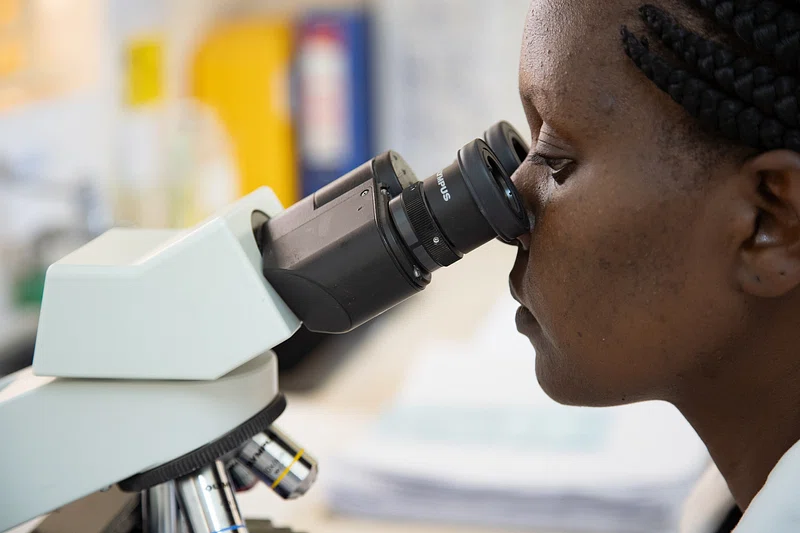
The US Department of Defense (DoD) and Google are developing an artificial intelligence (AI)-powered microscope to help doctors detect cancer. The device, called the Augmented Reality Microscope (ARM), is designed to assist pathologists in identifying cancerous cells and assessing their aggressiveness.
The ARM works by overlaying a computer-generated image onto the live view of the tissue sample. The AI model is trained to identify different types of cancer cells and highlight them on the image. This can help pathologists to identify cancer cells more quickly and accurately, especially in complex cases.
The ARM is still under development, but it has already shown promising results in early testing. In one study, the ARM was able to identify cancer cells in breast tissue samples with 99% accuracy. This is significantly higher than the accuracy of human pathologists, who typically achieve accuracy rates of around 85-90%.

The DoD and Google are hoping that the ARM will have a significant impact on cancer diagnosis and treatment. The device could help to improve the accuracy and efficiency of cancer diagnosis, which could lead to earlier detection and better treatment outcomes. The ARM could also be used to train pathologists and to provide second opinions in difficult cases.
The development of the ARM has been met with enthusiasm from the medical community. Dr. Nadeem Zafar, a pathologist at the VA hospital in Seattle, said that the ARM has the potential to revolutionize cancer diagnosis. He said that the device is particularly helpful in identifying rare and aggressive types of cancer.
“The ARM is a game-changer,” Zafar said. “It’s like having a second pair of eyes, and those eyes are trained to identify cancer cells with incredible accuracy.”
The ARM is still in the early stages of development, but it has the potential to make a real difference in the lives of cancer patients. By improving the accuracy and efficiency of cancer diagnosis, the ARM could help to lead to earlier detection and better treatment outcomes.
Experts Weigh In
In addition to Dr. Zafar, other experts have also expressed their excitement about the potential of the ARM. Dr. Susan G. Komen, founder of the Susan G. Komen Breast Cancer Foundation, said that the ARM is a “promising new technology” that could have a “significant impact” on the fight against cancer.
“The ARM has the potential to help doctors detect cancer earlier and more accurately,” Komen said. “This could lead to better treatment outcomes and save lives.”
Dr. Harold Varmus, Nobel laureate and co-founder of the National Cancer Institute, said that the ARM is a “remarkable example of how AI can be used to improve human health.”
“The ARM has the potential to revolutionize cancer diagnosis,” Varmus said. “I am excited to see how this technology develops and is used to help cancer patients in the future.”
The development of the AI Doctor microscope is a significant step forward in the fight against cancer. By improving the accuracy and efficiency of cancer diagnosis, the ARM has the potential to lead to earlier detection and better treatment outcomes.
It is exciting to think about the future of AI in medicine. As AI technology continues to develop, we can expect to see even more innovative and life-saving applications of AI in healthcare.
READ ALSO: Nikon Releases NIKKOR Z 135mm f/1.8 S Plena Lens for Z Mount System